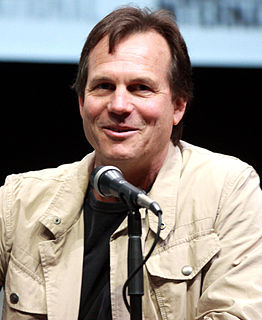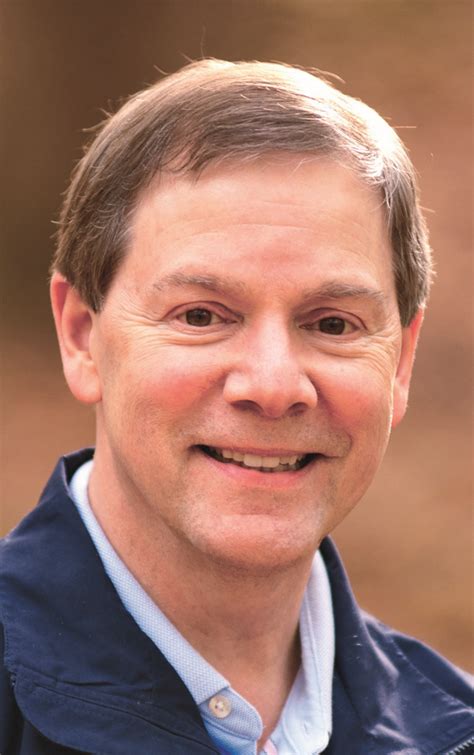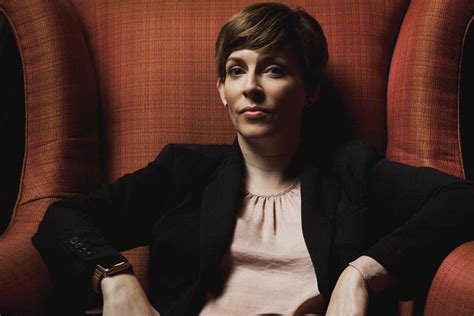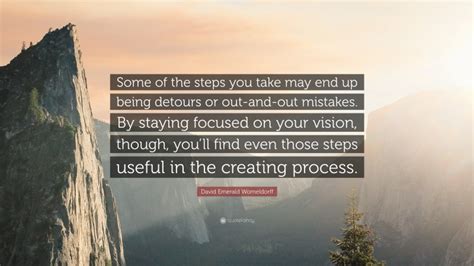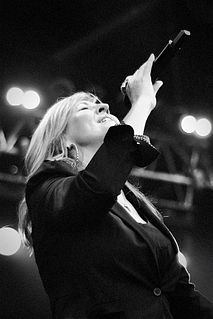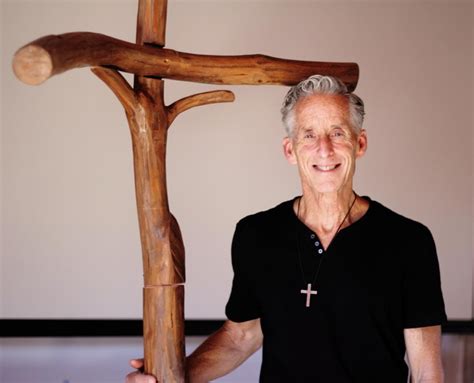Top 585 Lens Quotes & Sayings - Page 10
Explore popular Lens quotes.
Last updated on December 4, 2024.
For a moment she'd wondered if the seal around her sockets were tight enough to allow the tears simply to go on and fill up the entire lens space and never dry. She could carry the sadness of the moment with her that way forever, see the world refracted through those tears, those specific tears, as if indices as yet unfound varied in important ways from cry to cry.
I think a lot about Big Mind-Small Mind, expansive, wide-lens consciousness and contracted, introverted consciousness. I have moments-we all do-when just being alive is a pleasure and a miracle. They feel like moments when the shutters of the mind are open so I can look out. It also feels as if those same shutters have no hooks to fix them in an open position. One small wind and bang-they slam shut.
The difference between an amateur and a professional photographer is that the amateur thinks the camera does the work. And they treat the camera with a certain amount of reverence. It is all about the kind of lens you choose, the kind of film stock you use… exactly the sort of perfection of the camera. Whereas, the professional the real professional – treats the camera with unutterable disdain. They pick up the camera and sling it aside. Because they know it’s the eye and the brain that count, not the mechanism that gets between them and the subject that counts.
But perhaps more important, as someone wishing to make a comment or two about contemporary life and values, I don't have to dig through libraries or travel to exotic lands to arrive at a view of our modern situation refracted through the lens of the preindustrial world, or the uncommercialized, unfranchised, perhaps unsanitized-and therefore supposedly more "authentic"-perspective ofthe Third World. Very simply, this is because that "other" world, as alien as if separated by centuries in time, is the one from which I came
But I never looked like that!’ - How do you know? What is the ‘you’ you might or might not look like? Where do you find it - by which morphological or expressive calibration? Where is your authentic body? You are the only one who can never see yourself except as an image; you never see your eyes unless they are dulled by the gaze they rest upon the mirror or the lens (I am interested in seeing my eyes only when they look at you): even and especially for your own body, you are condemned to the repertoire of its images.
I'm educating myself more about world poetry. I know a lot about contemporary American poetry, so I felt I needed to learn more about figures like Borges, Akhmatova, Neruda, etc. I felt I needed a bigger lens to see poetry through. It really helps to see poetry as a world language, and not just something American.
So I tried to get my shot with a 50mm and I did it - this is when we're shooting film, not digital. The guy that hired me looked through the pictures and was like, "Oh, this is pretty good. You did a good job." And I was like, "Yeah, I'm sorry. I only had a 50mm. My girlfriend rented the wrong lens..." and he stopped looking at the pictures and he looked up at me and he said, "You shot this with a 50mm? You're hired."
What does a life without anxiety look like? With God as your helper, you'll sleep better tonight and smile more tomorrow. You'll reframe the way you face your fears. You'll learn how to talk yourself off the ledge, view bad news through the lens of sovereignty, discern the lies of Satan, and tell yourself the truth. You'll discover a life that's characterized by calm and will develop tools for facing the onslaughts of anxiety.
What does reflect reality very well is complexity theory, which comes from physics. I'm the one pioneering the idea of bringing it to capital markets. When you look at capital markets through the lens of complexity theory, you ask "what's the scale of the system?" Scale is a fancy word for size. What measures are you using? If you look at total debt, the concentration of assets in the five largest banks, what percentage of the total assets of the five largest banks are interconnected? What you see is a very densely connected, fragile system that could collapse at any moment.
People interpret things through their owns lens, just the way they do the Bible. You can find justification for just about everything in the Bible. I think man has got a great ego when it comes to his God, whatever that is. It just seems to me that someone who wants to take on God's punishment, it just seems a huge egoism to think that he should appoint himself to take care of God's punishments.
In 1982 I bought the newly released Makina Plaubel 55mm fixed-lens camera. With this shift from 35mm to 6 x 7, I also changed from black and white to color. Later that year, I started my project on New Brighton called The Last Resort. However, the first project I shot in colour was composed of urban scenes from Liverpool. This image was on the second roll of film. It's the first good photo I made in this new chapter of my work.
When we see through the lens of God's truth, revealed primarily in his Word, everything comes into sharper focus. Suddenly, we'll see that everything is integrated and overlapping - that the world is not divided between the sacred and the secular, but there's one life, and God is the Master of all of it. God knows all things, past, present, and future, and is all-wise; when we train ourselves to see more as he sees, we'll pursue the things he values and seek to live before him as our primary audience.
There are other people, other economies, governments, cultures, religions, and destinies going on at the same time as yours. You have to widen the scope of your lens and start seeing more. Because Americans, it's easy to make us freak out. When the going gets rough, you have to get conservative. That's what's happened to America in the last eight years. I just try to point out that there's more going on than most people pay attention to.
We were in the middle of a sandbar in the middle of the ocean with no one around, and still someone was following me from New York, and was hiding in some bushes like a mile away with a long lens, so he still got pictures. It was really an eye opener to how you really have to be careful about being followed everywhere. I was trying to go to the most remote place in the world, I was out on a sandbar in the middle of the ocean, and they still found me. It was definitely a very new experience.
3D needs a trained eye. It can't be done by everybody. People who just do 3D just for the sake of commercializing their movie another five or six percent and they don't know really how to do it, they should care how to do it better by bringing other directors and collaborators into their lives to help teach and instruct how you really make a 3D movie because it's not just like putting a new lens on a camera and forgetting it. It takes a lot of very careful consideration. It will change your approach to where you put the cameras. So, 3D isn't for everybody.
Some of the people who are now manipulating photos, such as Andreas Gursky, make the argument - rightly - that the 'straight' photographs of the 1940s and 50s were no such thing. Ansell Adams would slap a red filter on his lens, then spend three days burning and dodging in the dark room, making his prints. That's a manipulation. Even the photographs of Henri Cartier-Bresson, with all due respect to him, are notoriously burned and dodged.
Of course, it may be that the arts of writing and photography are antithetical. The hope and aim of a word-handler is that he maycommunicate a thought or an impression to his reader without the reader's realizing that he has been dragged through a series of hazardous or grotesque syntactical situations. In photography the goal seems to be to prove beyond a doubt that the cameraman, in his great moment of creation, was either hanging by his heels from the rafters or was wedged under the floor with his lens in a knothole.
The Canon AE1 - a fully manual camera. [My mother] had a 50mm, which is a standard lens, and then I got a 28mm. Then I started a little punk magazine, a zine, when I was 14 or 15 years old. I was shooting my friends skateboarding and it was the beginning of the Macintosh. We wouldn't do layouts on the computer; we would pick the font and then type up a paragraph and then print it out and cut it up and put it in a little mock-up and Xerox it.
I think movies say a lot [about real life], even more than theater. It says a lot about the invisible, that movies are so fascinating. The camera lens is like a microscope that goes beyond the surface. It's like you're exploring a secret, so you explore the director's secret, you explore the actor's secret, and therefore you explore the universe's secrets.
Now I'm sixty-one... sixty-two, pretty soon. It's a really interesting age. Now we have women of your age, and coming up, and all these fantastic writers, who have managed to have their children but continue with their art, their work. I think women are doing the most interesting writing right now, the most interesting art. I see everything through this lens, of women finally taking their place in the world. Their true place. And it's very, very exciting to me.
[W]omen's magazines know that more than two thirds of women pray each day so they tend to promote "spirituality" which is warm, soft, fuzzy, and "me-centered, " rather than religion, which is definitely not. Shot with a soft-focus lens, spirituality in women's media has morphed into another method of stress reduction. Lulling and inoffensive, spirituality is more about taking long walks and buying $65 Jo Malone scented candles than making ethical decisions or moral judgments. It's another way to calm ourselves, refresh ourselves, or applaud ourselves.
If I had stood at the free-throw line and thought about 10 million people watching me on the other side of the camera lens, I couldn't have made anything. So I mentally tried to put myself in a familiar place. I thought about all those times I shot free throws in practice and went through the same motion, the same technique that I had used thousands of times. You forget about the outcome. You know you are doing the right things. So you relax and perform.
Perhaps we are looking at this from a wrong perspective; this search for the truth, the meaning of life, the reason of God. We all have this mindset that the answers are so complex and so vast that it is almost impossible to comprehend. I think, on the contrary, that the answers are so simple; so simple that it is staring us straight in the face, screaming its lungs out, and yet we fail to notice it. We're looking through a telescope, searching the stars for the answer, when the answer is actually a speck of dirt on the telescope lens.
Like wind-- In it, with it, of it. Of it just like a sail, so light and strong that, even when it is bent flat, it gathers all the power of the wind without hampering its course. Like light-- In light, lit through by light, transformed into light. Like the lens which disappears in the light it focuses. Like wind. Like light. Just this--on these expanses, on these heights.
What I want is to talk about how someone raised Muslim struggles with the same stuff that everyone else theoretically could. Obviously, the particulars are different, but everybody can sympathize with being forced to answer for their identity, the colour of their skin or their religion. A lot of people struggle with mental illness or romance or failed marriages - these are all parts of my own struggle. I read them through the lens of Islam because that's the particular language I grew up in, but the grammar is universal.
I feel like I learn every day how I can be a better producer or writer or storyteller. The thing that keeps me the most balanced is just going home every day and getting my ass kicked by my kids, and having a wife who is the most wonderfully/brutally honest person I've ever met. I think that that is always the first lens through which I see the world. For everything else, I'm just grateful for the people I work with.
I think that's true of all cinema, that's why cinema is the great humanistic art form. Whatever the film is, it doesn't matter what the film is about, or even whether it's a narrative or figurative film at all, it's an invitation to step into somebody else's shoes. Even if it's the filmmaker's shoes filming a landscape, you go into somebody else's shoes and you look out of their lens, you look out of their eyes and their imagination. That's what going to the pictures is all about.
Once we begin to feel deeply all the aspects of our lives, we begin to demand from ourselves and from our life-pursuits that they feel in accordance with that joy which we know ourselves to be capable of. Our erotic knowledge empowers us, becomes a lens through which we scrutinize all aspects of our existence, forcing us to evaluate those aspects honestly in terms of their relative meaning within our lives. . . .
We all have those dreams of going back in time and seeing what it was like when our parents were younger. Maybe we don't all have that dream. I don't know. Getting to role play or step back to a different moment in time and see things through a different lens is something that resonated with me, for sure. We don't get to do that, generally, but when the right neurological disorder lines up with the right unstable woman, that moment presents itself. Getting to know where we come from is a really profound way of getting to look at who we are.
I think when you're running for president, especially someone that's never held elected office, there's one set of things that you may view the world through - a lens that you may view the world through. Then, you get elected and you get good people. And those good people bring you the facts. And they bring you, "Here's what's going on. Here are our options. Here's what happens if you do this. Here's what happens when you do that." And that reality begins to assert itself. And you have to react to that. You're now the president. You're no longer a candidate.
If you're a certain type of actor, then eventually stepping into a director's shoes is a natural transition. I've always been the actor who's very focused on the narrative, where my character is in the story, and how I can benefit the story. I've always had a technical aspect of what the lens is, how the camera is going to move, how I can feed the information the director applies within that move. If you're that type of actor, narrative-based, technically proficient, the next step is actually not that far.
I've found in my own life that the older I get, the more stubborn I am in my beliefs and opinions. Without keeping my ego in check, it would be easy for me to bail on relationships when I didn't agree with someone. The antidote to this problem is humility, plain and simple. The more we claim an unassuming nature, the more we believe the best about people and situations, and the more we try and see others through the lens of love. We are then given the opportunity for our relationships to grow.
This was middle school, the age of miracles, the time when kids shot up three inches over the summer, when breasts bloomed from nothing, when voices dipped and dove. Our first flaws were emerging, but they were being corrected. Blurry vision could be fixed invisibly with the magic of the contact lens. Crooked teeth were pulled straight with braces. Spotty skin could be chemically cleared. Some girls were turning beautiful. A few boys were growing tall.
One of the stories I love is how Gutenberg’s printing press set off this interesting chain reaction, where all of a sudden people across Europe noticed for the first time that they were farsighted, and needed spectacles to read books (which they hadn’t really noticed before books became part of everyday life); which THEN created a market for lens makers, which then created pools of expertise in crafting lenses, which then led people to tinker with those lenses and invent the telescope and microscope, which then revolutionized science in countless ways.
I am always behind the shopper at the grocery store who has stitched her coupons in the lining of her coat and wants to talk about a 'strong' chicken she bought two weeks ago. The register tape also runs out just before her sub-total. In the public restroom, I always stand behind the teen-ager who is changing into her band uniform for a parade and doesn't emerge until she has combed the tassels on her boots, shaved her legs, and recovered her contact lens from the commode.
The way you talk about yourself and your life-your story-has a great deal to do with what shows up in your day-to-day experience. Your thoughts create filters through which you view your life. If you think of yourself as a Victim, you filter all that happens to you through the lens of DDT, and you find plenty of evidence to support that viewpoint. That's why the orientation you adopt is so important: it exerts a powerful influence on your life direction.
I was thinking about framing, and how so much of what we think about our lives and our personal histories revolves around how we frame it. The lens we see it through, or the way we tell our own stories. We mythologize ourselves. So I was thinking about Persephone's story, and how different it would be if you told it only from the perspective of Hades. Same story, but it would probably be unrecognizable. Demeter's would be about loss and devastation. Hades's would be about love.
The fame thing is interesting because I never wanted to be famous, and I never dreamt I would be famous....You know I didn't think they'd rake through my bins, I didn't expect to be photographed on the beach through long lens. I never dreamt it would impact my daughter's life negatively, which at times it has. It would be churlish to say there's nothing good about being famous; to have a total stranger walk up to you as you're walking around Safeways, and say a number of nice things that they might say about your work.
God makes it clear that his image bearers must live in dynamic communion with one another, thereby discovering and celebrating the good gift of one's own gender and that of the other. With a cross-shaped lens, we behold the beauty of man for woman and woman for man. None of us has ever lost that original design. No matter how broken we have become, we have never lost the potential to be good gifts for others!
I believe in empathy. I believe in the kind of empathy that is created through imagination and through intimate, personal relationships. I am a writer and a teacher, so much of my time is spent interpreting stories and connecting to other individuals. It is the urge to know more about ourselves and others that creates empathy. Through imagination and our desire for rapport, we transcend our limitations, freshen our eyes, and are able to look at ourselves and the world through a new and alternative lens.
Elizabeth Taylor is, in my opinion, the greatest actress in film history. She instinctively understands the camera and its nonverbal intimacies. Opening her violet eyes, she takes us into the liquid realm of emotion, which she inhabits by Pisces intuition. Richard Burton said that Taylor showed him how to act for the camera. Economy and understatement are essential. At her best, Elizabeth Taylor simply is. An electric, erotic charge vibrates the space between her face and the lens. It is an extra-sensory, pagan phenomenon.
It’s not easy to find old-school journalism in true crime … yet with Lethal Intent, author Sue Russell proves how integrity, tenacity, brutal truth and honest reporting become essential components to what is a riveting—if not terrifying—narrative of America’s most hated ‘monster,’ Aileen Carol Wuornos. It’s not easy humanizing serial killers, but through an objective lens, clear and defined, Russell paints a graphic portrait of Wuornos’ evil intentions and rough life—a true page-turner, breathless, intense—but also important.
Many nightclubs from this era were very loud and very dark. Plus some of the best ones were incredibly crowded. To begin with, I could seldom get back far enough to get people into frame from head to foot and when I could, people would be constantly walking in front of me all the time. Then I bought a 24-mm lens and only had to be four or five feet away.
You can put this another way by saying that while in other sciences the instruments you use are things external to yourself (things like microscopes and telescopes), the instrument through which you see God is your whole self. And if a man's self is not kept clean and bright, his glimpse of God will be blurred - like the Moon seen through a dirty telescope. That is why horrible nations have horrible religions: they have been looking at God through a dirty lens.









